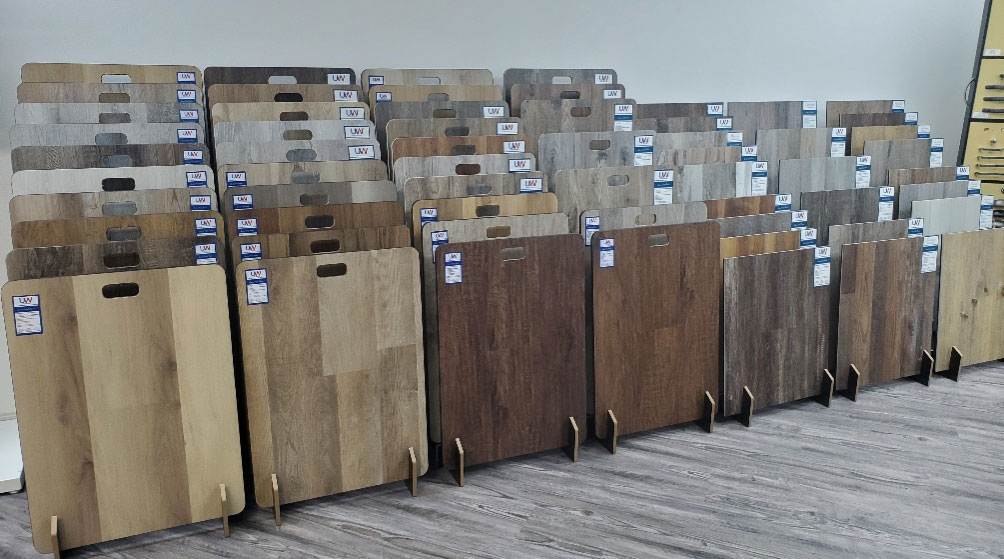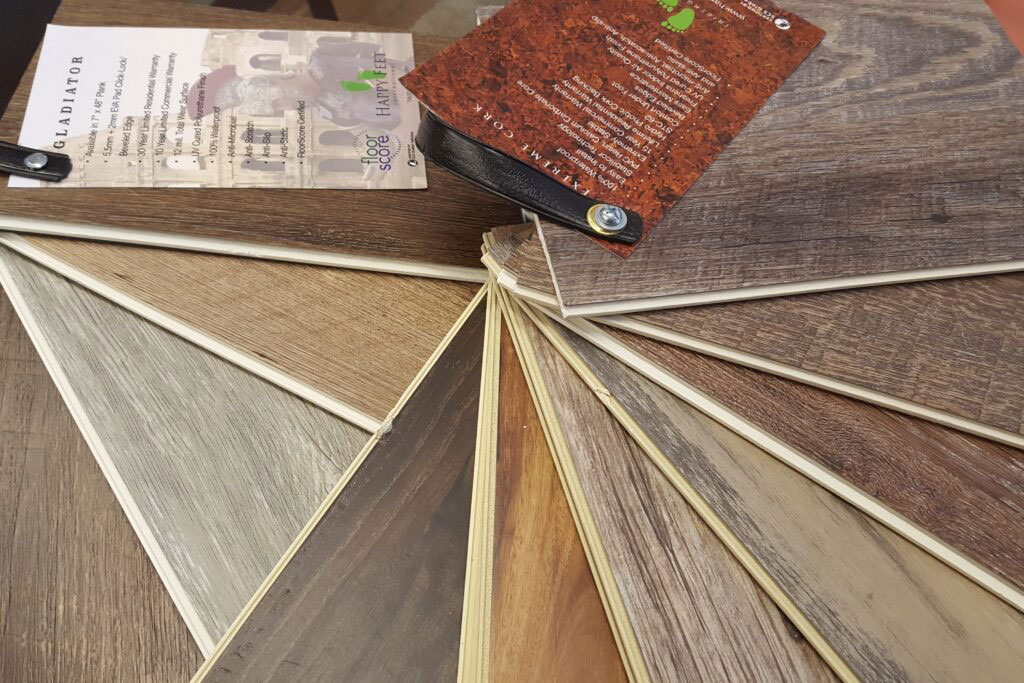If you are reading this, you are likely hoping to replace the flooring in your home with a wood floor. This blog covers the questions that people often have about wood flooring and gives you a bit of comparison between solid wood flooring and engineered wood flooring so that you can better choose the type of flooring that fits your home and lifestyle.
What Is Solid Wood Flooring?
Solid wood flooring is made of solid wood. It is a plank from a tree and the type of wood flooring that has been in use for centuries. Solid wood flooring is usually cut from hardwood trees such as oak but sometimes it can be cut from softer woods such as pine trees. If you are looking to add wood floors to your home, this would be the first choice of most people.
What is Engineered Wood Flooring?
Engineered wood flooring is constructed rather than grown. It has a hardwood surface (top) and a fabricated core and backing. This process is sometimes referred to as laminate. There are some good quality brands of engineered flooring (LVP, or luxury vinyl plank) on the market. The draw of engineered wood flooring is that it has a nice look and it is often less expensive than solid wood flooring.

Is engineered wood better than solid wood?
Water Damage – Not a Good Outcome
If your house has water damage from a broken pipe, roof leak, or flood, engineered wood flooring can become damaged to the point it must be replaced. The hardwood top may be okay, but the backing material, which is often plywood or particle board may absorb water and then warp. If your home has solid wood flooring, the wood may soak up some water, but it can also be dried out and repaired. There are original solid wood floors that have been in use for 400 years. It is unlikely that Engineered Wood Flooring will last that long.
Upkeep and Maintenance for Wood Flooring
Stuff happens and wood floors – solid or engineered – may become damaged. Because engineered wood flooring only has a thin top layer of wood, you are limited by how often the floor can be repaired. Generally, wood floors are sanded to remove damage but with only a thin top layer you can only sand an engineered wood floor a few times before you have worn away the hardwood top.
With a solid wood floor, there is much more material to work with before the board is ruined. Therefore, you can repair a solid wood floor more often Vs. an engineered wood floor. With actual hardwood flooring, you can sometimes also flip the board over to expose a brand-new surface. You cannot do that with single-surface wood planks.
Best types
Determining the best type of wood product for your flooring needs revolves around how you plan to use the space. If you have big pets or small kids, you probably want to choose a flooring product that is durable because wood planks can be soft and may damage easily.
Wood Planks or solid wood planks give you a lot of room to repair the damage. That’s a plus in a busy house or in an area that has a lot of traffic.
Vinyl planks are difficult to repair, and they can sometimes emit odors that are chemical in nature (VOCs.) Vinyl planks also have a much shorter lifespan than solid wood flooring, and there is not a lot of information about how vinyl flooring impacts home value. Most vinyl planks are glued in place and removing them can be difficult. For those of you who are considering the ecological impact of your flooring purchase, vinyl floor is usually not a recyclable product. Vinyl flooring is also soft, and in an area where there is sunlight can warp or lift as the glue heats up. It may also take an imprint from heavy furniture if used in a warm area – chair legs, furniture legs, etc.
Rigid Core flooring is usually harder and will stand up to heavy traffic. It has the ability to accept repairs, though depending on the type, you may be limited to only a few repairs. Solid wood flooring is much easier to repair. Solid wood flooring is also easier to recycle or upcycle. Most solid wood flooring is installed without glue so removing it is much easier. There is a definite benefit with increased home value when you use solid wood flooring.
Does engineered floors dent or scratch?
Engineered flooring can scratch and dent, just like a solid wood floor. Wood floors and vinyl floors all have different methods of caring for them. You will need to keep wood floors dry and swept.
Does Wood Flooring Stand Up to Water?
Vinyl flooring has an advantage over wood floors – it can handle water, moisture, to a degree even flooding. That makes vinyl floors a good fit in areas of your home where moisture is an issue – basements, bathrooms, etc.
Are Vinyl Floors Hard to Maintain?
Once vinyl floors are installed, they need only regular cleaning. Wood floors have a more brutal cleaning regime and may need to be refinished every five years or so.
Is Vinyl Flooring Eco-friendly?
No. Vinyl flooring is man-made and out of PVC resin. It is not environmentally friendly, and it can leach VOCs into the home or office area.
Still, have questions? Find the answers by reaching out to our team and exploring the benefits, pros, and cons of wood or engineered flooring for your project.

